On July 2, 2025, the Academy of Public Administration and Governance (APAG), in collaboration with the Normandie School of Management (EM Normandie) (France), held an international workshop titled “Green Economy Development – Theory and Practice.” The workshop was organized in a hybrid format, with both in-person participation and online connection to the APAG campuses. The event was co-chaired by Prof. Dr. Nguyen Quoc Suu, Vice President of APAG, and Assoc. Prof. Dr. Do Thi Kim Tien, Acting Dean of the Faculty of Economics.
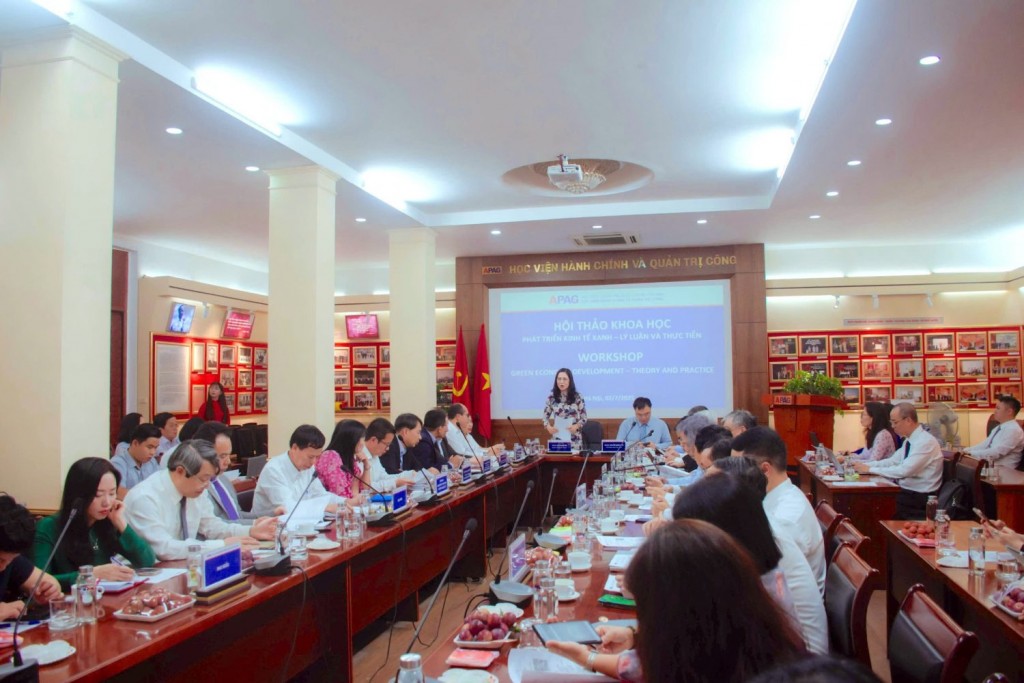
At the workshop.
Workshop participants and guests included Assoc. Prof. Dr. Tran Dinh Thien, Former Director of the Vietnam Institute of Economics, Member of the Prime Minister’s Policy Advisory Council; Dr. Nguyen Si Dung, Former Deputy Head of the Office of the National Assembly; Dr. Nguyen Tat Thinh, Director of the Asia-Pacific Institute of Economic Development Research; Mr. Do Tien Thinh, Deputy Director of the National Innovation Center, Ministry of Finance; Mr. Ha Huy Thuc, representative of Ha Do Construction and Greenery Joint Stock Company; Mr. Pham Van Dung, CEO of Sao Viet Construction and Trading Joint Stock Company.
From the EM Normandie, the workshop featured the participation of Prof. Dr. Escobar Octavio, Head of Economics, Territories & Sustainable Development Department; Assoc. Prof. Dr. Kovarski Olivier, International Programs Director; Assoc. Prof. Dr. Tran Nguyen Khoi, Associate Professor of Supply Chain Management and Logistics; Assoc. Prof. Dr. Nguyen Huu Thanh Tam, Associate Professor of Economics.
On the side of APAG, there were Assoc. Prof. Dr. Nguyen Ba Chien, President of APAG; Dr. Bui Phuong Dinh, Vice President of APAG; leaders of APAG faculties, departments, and units, along with researchers, lecturers, staff members, doctoral candidates, graduate students, and undergraduates.
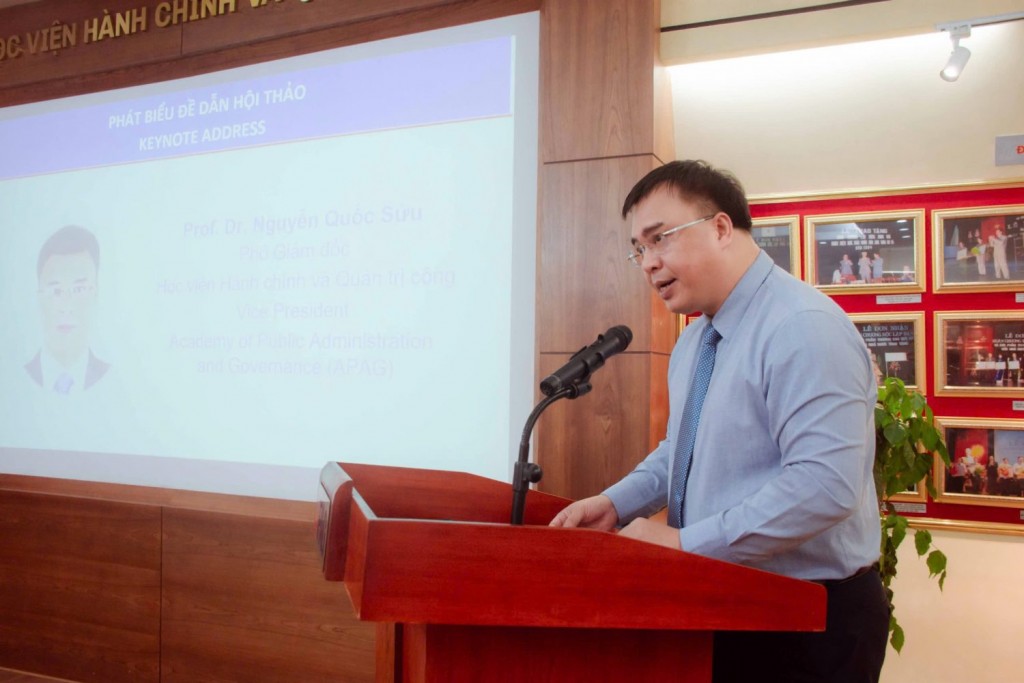
Prof. Dr. Nguyen Quoc Suu, Vice President of APAG, delivered the keynote address.
In his keynote speech, Prof. Dr. Nguyen Quoc Suu emphasized that industrialization, urbanization, and wasteful consumption have led to pollution, climate change, resource depletion, and biodiversity loss. In this context, the green economy has emerged as a strategic direction that harmonizes economic development, environmental protection, and social welfare. The shift toward a green economy is a complex task, encompassing institutional reform, growth model innovation, energy transition, green production, sustainable consumption and investment, as well as promoting changes in social behavior.
In practice, many localities and enterprises in Viet Nam have taken pioneering steps toward green transformation, such as eco-industrial zones in Ninh Binh, Can Tho, and Binh Duong; solar and wind power projects in Ninh Thuan and Bac Lieu; organic farming and low-carbon agricultural models; sustainable consumption initiatives and plastic waste recycling efforts. These projects not only highlight the challenges of green transition, but also present opportunities to improve competitiveness. Therefore, the workshop was organized to clarify both the theoretical foundations and practical realities of green economic transition in Viet Nam. It also aimed to collect valuable contributions and feasible, practical solutions to effectively and sustainably promote green economic development in the country.
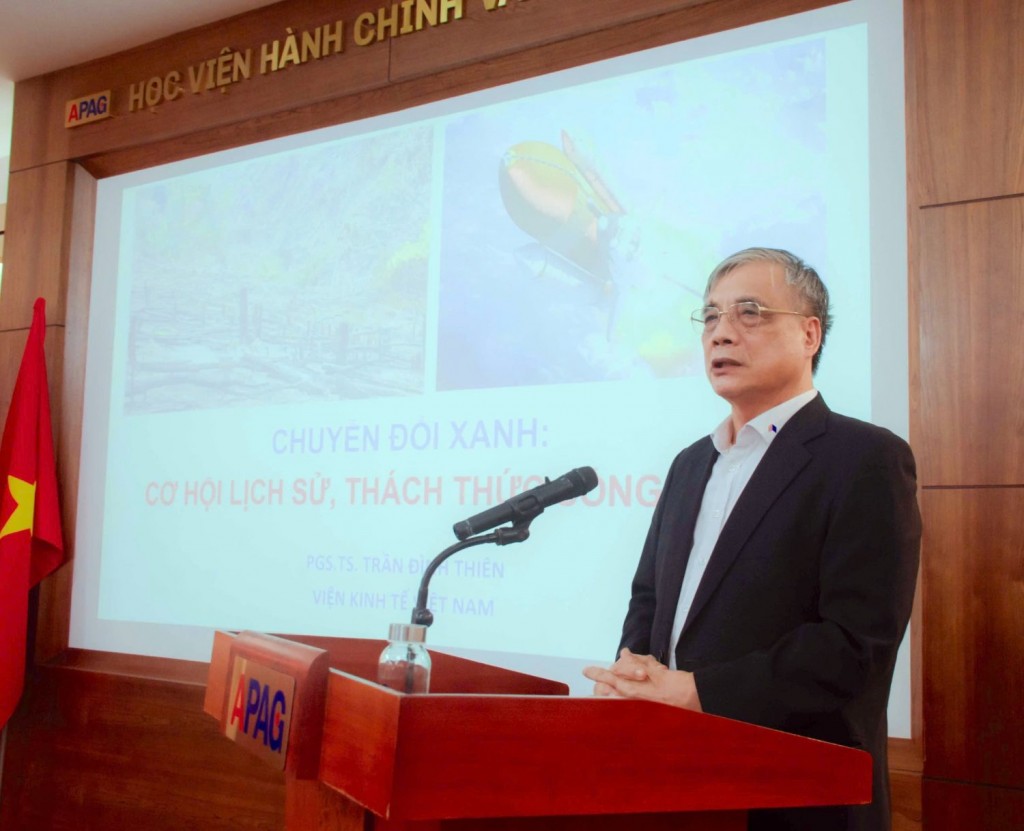
Assoc. Prof. Dr. Tran Dinh Thien, Former Director of the Vietnam Institute of Economics, Member of the Prime Minister’s Policy Advisory Council, presented at the workshop.
At the conference, Assoc. Prof. Dr. Tran Dinh Thien shared his insights on the topic “Green transition: A historic opportunity, a matter of survival.” He emphasized that green transition is no longer a choice, but an inevitable global trend, compelling humanity to shift to a new stage of development, in harmony with nature, with an inclusive, integrated, and balanced approach. He also pointed out major challenges in the implementation process, particularly execution capacity, which necessitates changes in order to survive and develop sustainably.
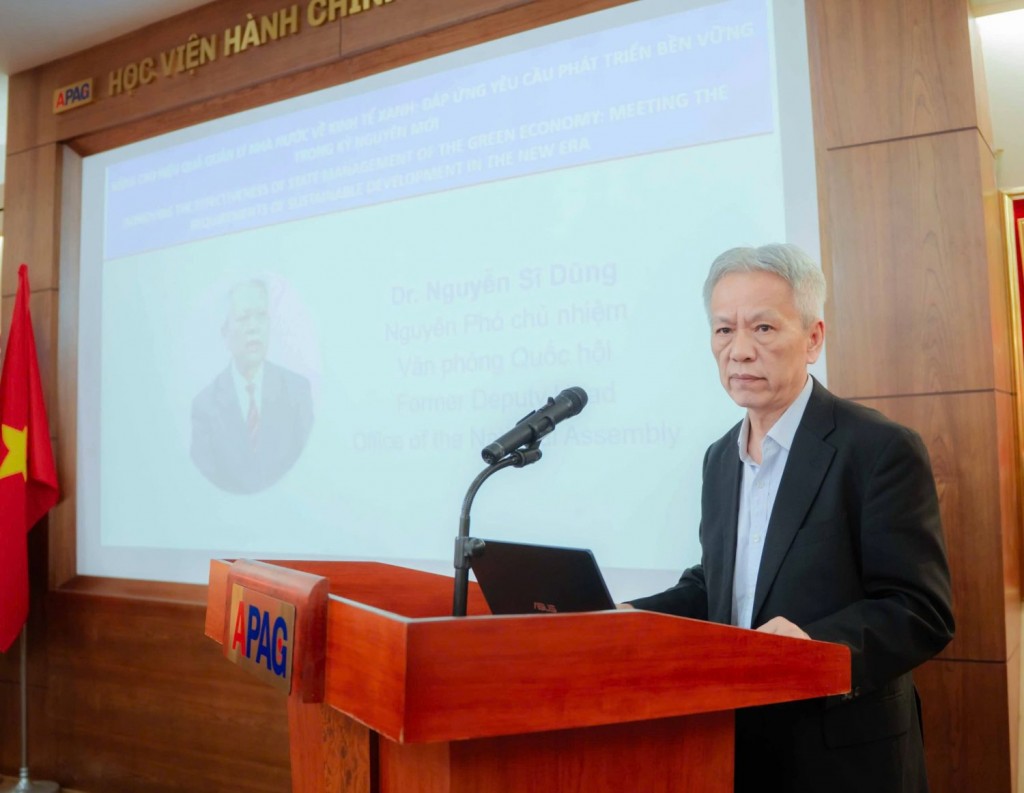
Dr. Nguyen Si Dung, Former Deputy Head of the Office of the National Assembly, presented at the workshop.
In his presentation titled “Green economic development and sustainable development in Viet Nam today,” Dr. Nguyen Si Dung highlighted that state management plays a crucial role in the transition to a green economic model and is also an essential requirement in the era of sustainable development. Viet Nam has begun to demonstrate its political will through strategies, policies, and international commitments. However, the current state management system still faces many limitations, such as a lack of specialized laws; weak inter-sectoral coordination mechanisms; underdeveloped policy tools; limited implementation capacity at the local level.
Therefore, enhancing the effectiveness of state management over the green economy is not just a technical matter but a strategic imperative, bringing environmental, social, and economic benefits. He also stressed that state governance must be restructured toward a “facilitative, transparent, and flexible” approach to successfully lead the green transition amid Viet Nam’s international integration and global competition.
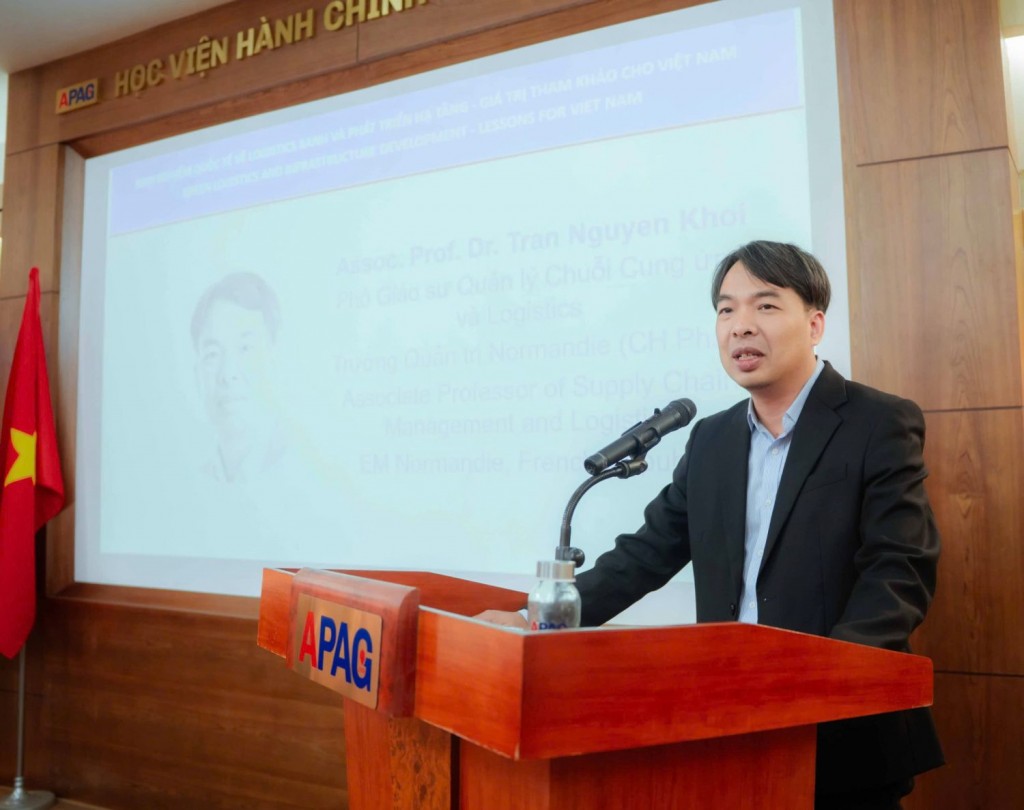
Assoc. Prof. Dr. Tran Nguyen Khoi, Associate Professor of Supply Chain Management and Logistics, EM Normandie, presented at the workshop.
In his presentation, Assoc. Prof. Dr. Tran Nguyen Khoi argued that green logistics and sustainable infrastructure development are global trends, not only for environmental protection but also for economic efficiency and enhanced competitiveness. Viet Nam can learn from valuable experiences of developed countries such as the Netherlands, Singapore, and Germany. He proposed that Viet Nam should focus on multimodal transport; make significant investments in infrastructure that connects ports with railway and inland waterway networks to facilitate environmentally friendly freight transport; apply smart technologies and automation to optimize efficiency and reduce environmental impact; promote free trade zones and distribution centers to streamline and optimize the supply chain.
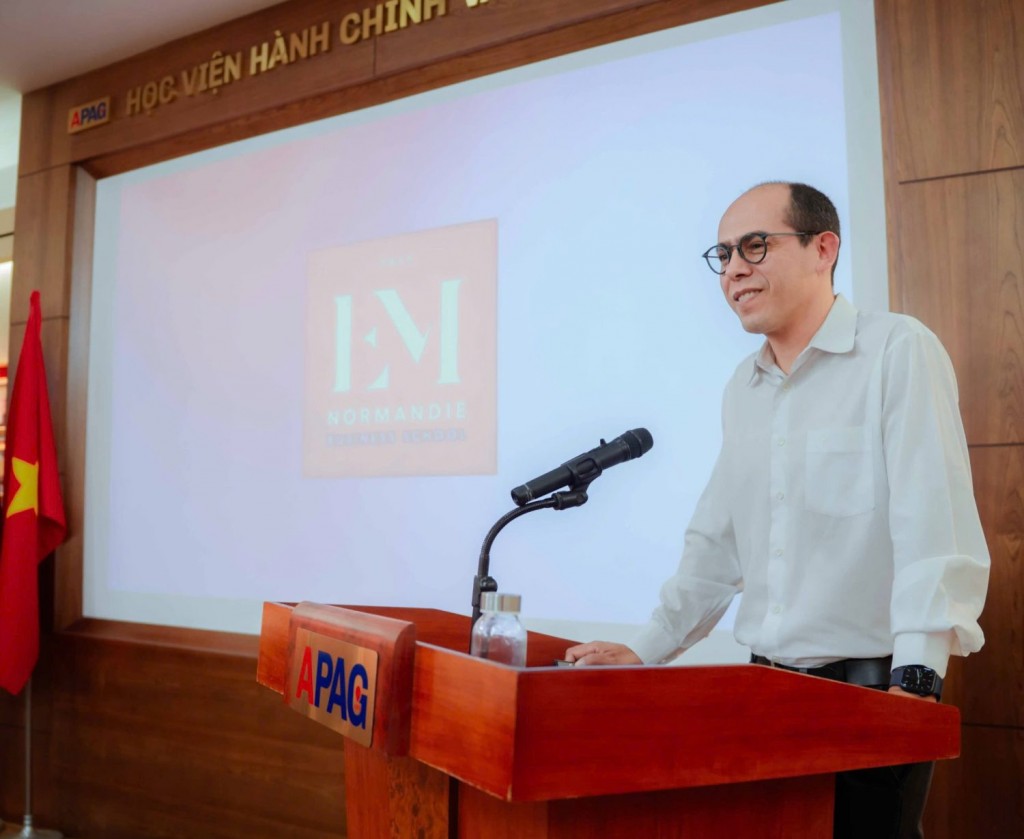
Prof. Dr. Escobar Octavio, Head of Economics, Territories & Sustainable Development Department, EM Normandie, presented at the workshop.
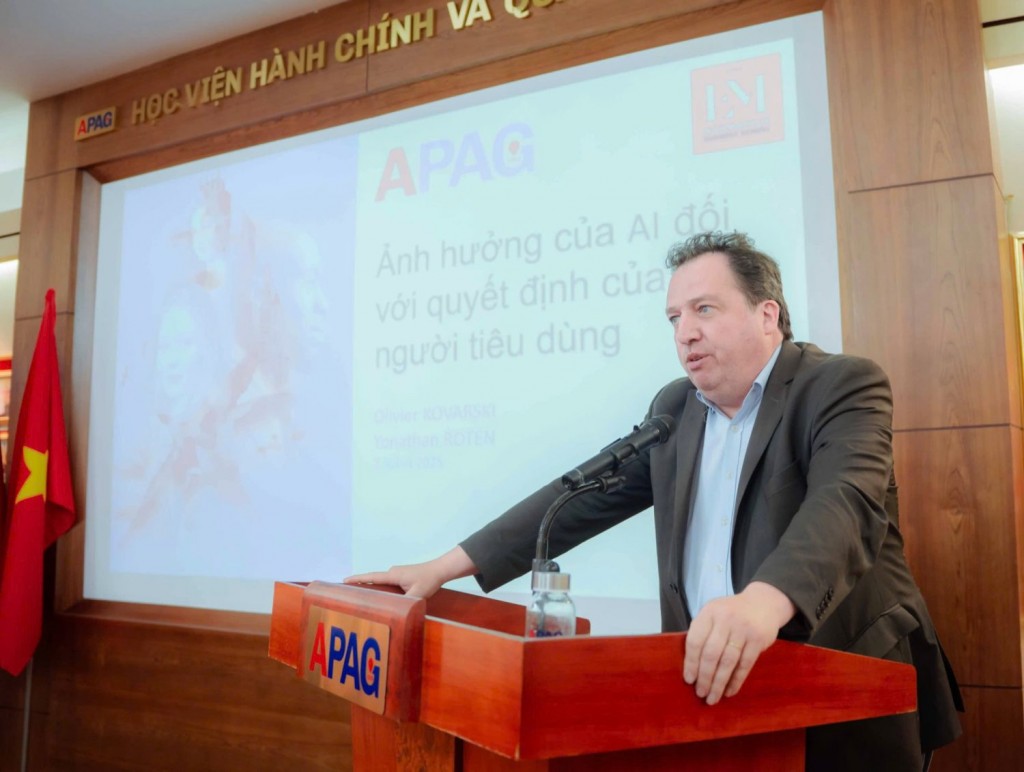
Assoc. Prof. Dr. Kovarski Olivier, International Programs Director, EM Normandie, presented at the workshop.
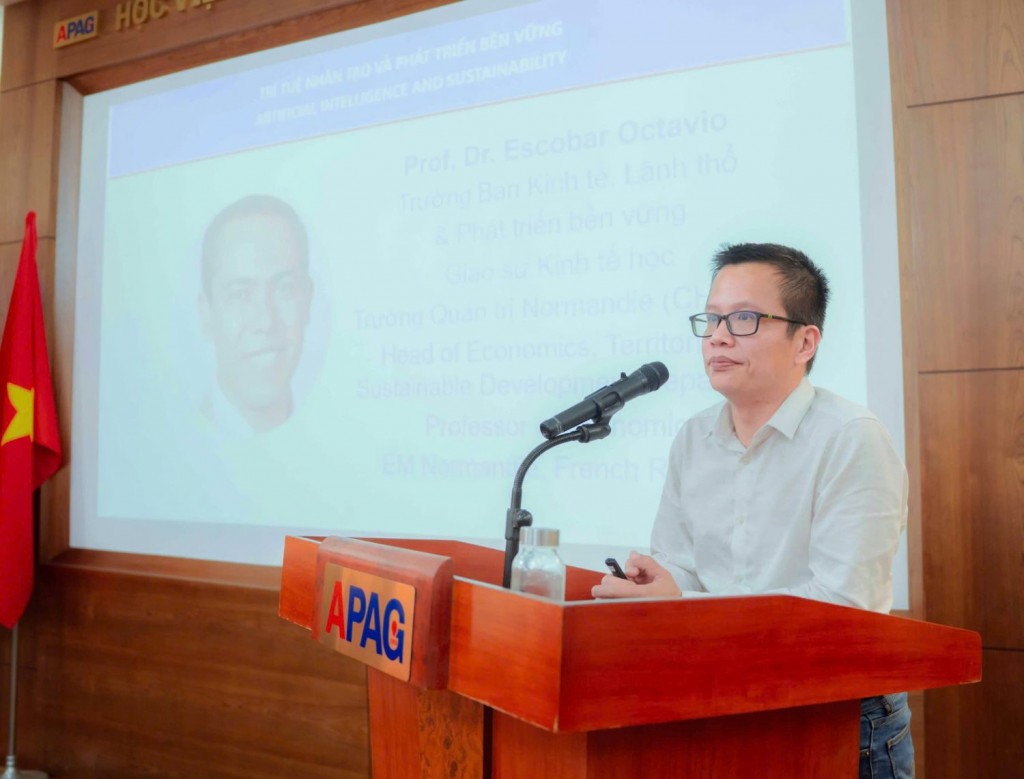
Assoc. Prof. Dr. Nguyen Huu Thanh Tam, Associate Professor of Economics, EM Normandie, presented at the workshop.
The workshop also welcomed many valuable opinions from researchers and delegates. The discussions focused on several key issues, such as the relationship between artificial intelligence and sustainability; innovation as a path to overcome development traps; improving policies and laws on green economic development in Viet Nam; institutional bottlenecks hindering green development; optimal solutions for promoting a green economy; financial constraints and the institutional capacity gap between localities.
In his concluding remarks, Prof. Dr. Nguyen Quoc Suu extended his sincere gratitude to the delegates from EM Normandie, representatives from various ministries and agencies, and researchers for attending the workshop and offering valuable contributions through their presentations, commentary, and open discussion. He emphasized that these insights have provided experts, scholars, and participants with important information and perspectives, contributing meaningfully to the development of Viet Nam’s green economy.
Ultimately, the workshop reaffirmed the continued commitment to promoting economic development while ensuring the reduction of carbon emissions and pollution, increasing the efficient use of resources and energy, and preventing biodiversity loss and the degradation of ecosystem services.
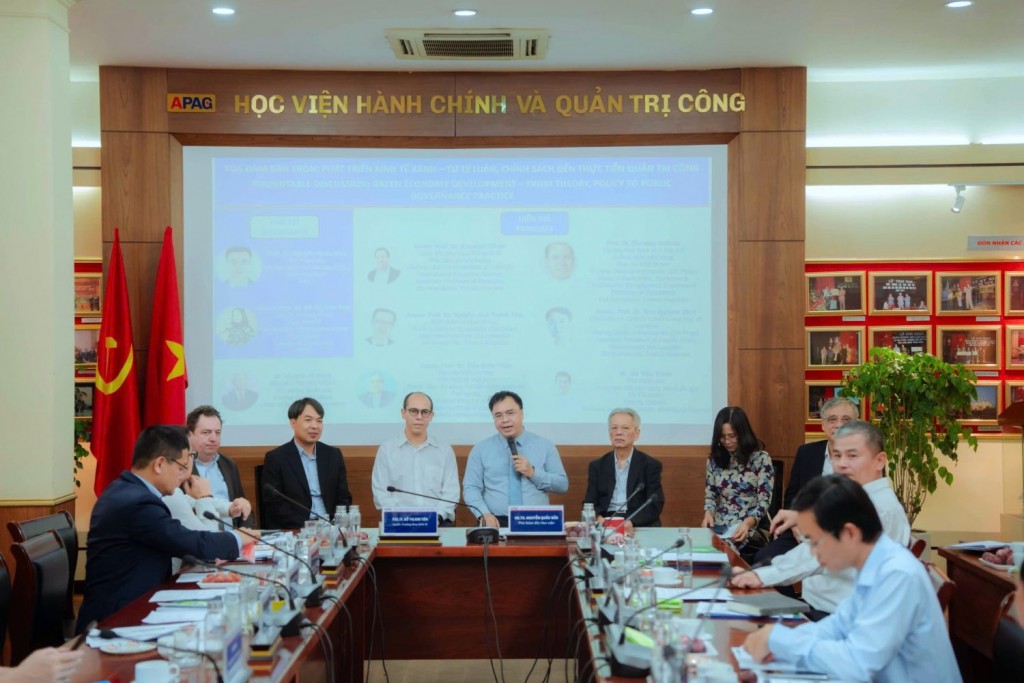
Workshop participants engaged in group discussion.
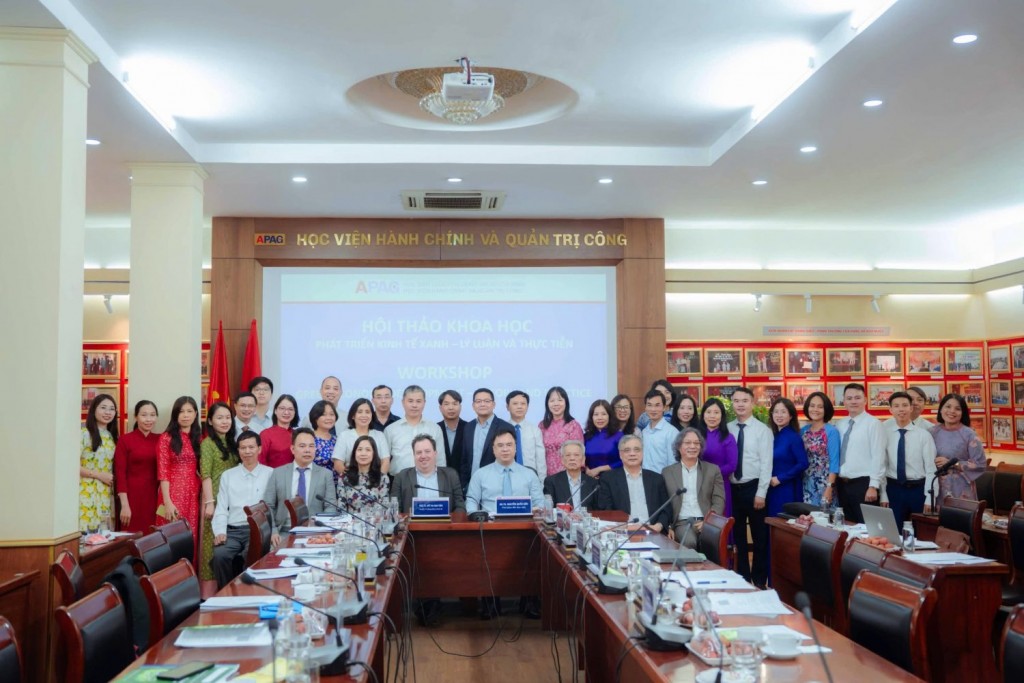
Workshop participants.